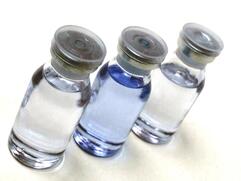|
This blog post is based on a conversation between Michel de Baar, Executive Director, BD&L - Infectious- and Cardiometabolic Diseases, Vaccines & Immunology at MSD (Merck & Co. Inc) and the #CoffeeBuddies, a virtual discussion group hosted by Graham Combe and chaired by Professor Tony Sedgwick. Book to join #CoffeeBuddies on Tuesdays and Thursdays at 2.30 pm BST (GMT+1 hr) at Eventbrite.  Business development teams looking to fill pharma company pipelines are seeking products that meet unmet medical needs, either filling gaps where there are no existing treatments, or creating a product that is significantly better than something already on the market. These opportunities should come with solid science and at least the beginning of a good data package created using studies with the right models and the right controls. As discussed in an earlier #CoffeeBuddies session, investments pre-Covid-19 had started to move to earlier stage projects, and this needs companies to reach out actively to universities and biotechs that have assets based on good science that might otherwise slip under the radar. This can be helped by good local, national, and international networks created through links with national and local trade organisations, and local academia. Operating companies in individual territories may be able to provide information on local research via their networks, and even keep an eye open for ideas. By building relationships with biotechs and academia even before they have something to licence, companies can get an early 'foot in the door'. They can ensure that the science is good as well, by mentoring and supporting the SMEs and institutions as they develop their data packages. In order to pick the right projects, business development and licensing teams need to remain objective. Working together can help to reduce any natural bias, and can also provide subject matter and technology expertise. Working without a 'shopping list' means that projects can be picked up opportunistically, potentially creating a whole new franchise. Combatting Covid-19 SARS-CoV-2 is a virus that is potentially fatal, and increasing evidence suggests that it could have longer-term effects for some people. This threat is providing a driver for business development teams to find and partner for generic and innovative drugs that could help. The urgency means that some companies are making announcements at the statement of interest stage, even before full agreements are in place. It will be interesting to see if this remains after the crisis is over. Before the outbreak, MSD's pipeline already included research key to the area of Covid-19 infection – infectious disease, vaccines, immunology and respiratory disease. After the outbreak, the company switched almost all of its efforts to respond to the Covid-19 outbreak The business development teams, the global competitive intelligence group and the discovery teams have worked together to evaluate around 250 different targets and programs with early stage data packages. Assessment of potential assets is ongoing. This includes screening of existing drugs for new activity, which could potentially speed up drug development. MSD's response to Covid-19 includes a number of vaccine projects. Deciding which will go forward will depend on further understanding of the immunology of the virus, and the manufacturability, safety and immunogenicity of the different candidate vaccines. The most appropriate type of vaccine for the prevention of Covid-19 isn't yet clear, and companies around the world are taking a number of different tactics, as a previous #CoffeeBuddies session talked about. These include viral vectored and nucleic acid vaccines, which are still new approaches and may prove challenging for approval and scale-up; inactivated and protein subunit vaccines, which are tried and tested but can be complex to manufacture and often need a booster; and live-attenuated vaccines, which produce a strong immune response but may be associated with risks. Controlling the spread of the SARS-CoV-2 virus may require a lower risk vaccine and boosters to develop herd immunity, along with ring vaccination with a shot that produces a faster response but with a slightly higher risk of side effects. What will the pandemic mean for investors While the pandemic is ongoing, companies focusing on Covid-19 prevention and treatment are unlikely to make much of a profit; any marketed drugs, especially vaccines will need to be distributed widely and provided cost-effectively to those at highest risk. This means that long term investment will be needed, with an extended period until return on investment – both companies and shareholders will need to be patient. The future: the 'new normal? The biopharma industry is currently very much focused on vaccines, virology, immunology, and infectious diseases, which haven't been 'fashionable' areas of research. However, it's likely that there will be a shift back into 'normal' ways of working, with the focus returning to therapeutic areas with a higher potential return on investment, such as oncology and cardiovascular disease.
0 Comments
Leave a Reply. |
Archives
July 2024
Categories |
 RSS Feed
RSS Feed
